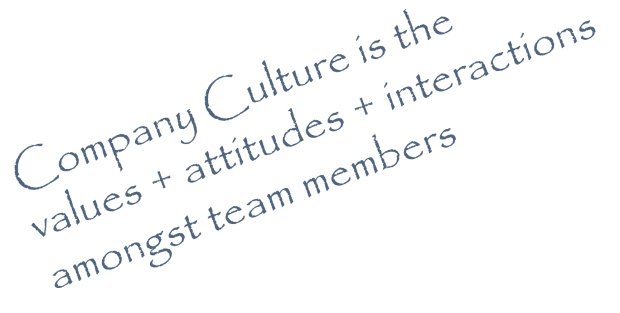Facebook and Twitter changed the face of news gathering and journalism. Because of social media, news isn’t restricted to professional retelling of the tale.
Why pay a reporter money when John Doe down the street is tweeting a story in real-time? Odds are, he has no advertisers to pander to either.
Journalists themselves are becoming increasingly obsolete as these citizen journalists take over.
I should know! My University degree is in Journalism!
You only have to look at the layoffs and recent unemployment numbers of the large media firms to find proof. On March 15, 2015 CBC announced plans to cut up to 1500 more jobs as it shifted its priority to digital and mobile media. CNN is now cutting 8% of its staff to cope with decreased sales.
Now, a shakeup is happening again in the world of digital media with the birth of simple livestreaming.
Have you Heard of Meerkat?

No, not that one – not really. This one.

Meerkat is the newest App making its rounds on the internet – and it could very well be the most interesting digital innovation since Twitter.
This app allows users to easily livestream video from their cellphones onto their Twitter accounts. Now, that might not seem like a big deal at first, but being able to watch and record events live has the potential to affect much of the existing infrastructure.
Think of this as an example. Media companies pay big bucks to get the right to broadcast events like the Olympics live. What will happen when any of the people attending these events can broadcast them with their smart phones for free?
Or pick another hot button topic like police brutality in the United States. With livestreaming, people could broadcast their encounters with police officers live without having to worry about the footage being deleted later because everyone has already seen it.
What about politics? Now, campaigns and reporters will be able to directly broadcast video on Twitter. When everyone can broadcast live, nothing will ever be the same.
Figuring it out now?
Much like Twitter, Meerkat’s big début had everyone in Silicon Valley declaring it the next big thing. The app racked up more than 100,000 downloads in just over two weeks.
How does it work?
Part of Meerkat’s charm is how easy it is to use. All it takes is the touch of a button and Twitter. No programming knowledge or coding required.
The app was originally designed to work exclusively with Twitter. In fact, Meerkat required users to have a Twitter handle before they could use the app.
Originally this worked well for both companies. Given that Twitter had proven itself to be the best real-time news outlet, Meerkat seems made for the right platform. And Meerkat’s Twitter sign-in requirement has forced some people to join Twitter.
It seemed like a match made in heaven.
But things are rarely that simple.
Twitter being difficult?
There have been some problems.
Meerkat was originally designed to use Twitter’s social graph and user data in order to make it easier for new users to find their friends.
Then last week, Twitter acquired and launched a Meerkat competitor called Periscope.
After purchasing Periscope, Twitter decided to halt the access Meerkat had to Twitter’s social graph. This drastically decreased Meerkat’s ability to notify users when their friends are livestreaming.
So while Meerkat users can still broadcast live videos on their Twitter feeds, their followers will no longer get a notification when a new live stream begins. Hard to broadcast when no one knows to watch.
This was done with virtually no warning, which left Meerkat floundering in the Digital waters.
Of course, Twitter did this to try to destroy the competition. Periscope officially launched last Thursday, and now Meerkat has some honest competition that can access Twitters social graph.

In response to this decision, Meerkat CEO Ben Rubin told Yahoo Tech the company would build its own social graph features.
Ben Rubin said that “Twitter’s move here shows how significant Meerkat has become. This is a small bump for Meerkat — a product built-in only 8 weeks by one person — and a sad day for the Twitter developer community, who build amazing products that help us connect with each other. And lastly, this is just the beginning for Meerkat.”
Other Social Media Sites
Facebook
Meerkat has no plans to push its video out through Facebook
“Facebook is not a real-time platform. It doesn’t cater to what we want to do,” Rubin said.
Katch
The downside to livestreaming is of course that it is live. Once it’s done, by definition, it’s done. Meerkat doesn’t have the ability to record a stream.
However, an app called Katch aims to change that.
If you add #Katch to your Meerkat video description tweet, the service will record and upload the live stream to YouTube, tweeting you a link to the video once it’s done processing.

You don’t even have to download a Katch app to use it. It’s automatic — all done by hashtag.
Use in the future:
Why has Meerkat, and now Periscope, infatuated so many? Because there is great power and potential in the ability to broadcast live video in real-time. As mentioned earlier in this blog, in the realm of news, the app opens up new opportunities for user-generated journalism. Viewers have to wait for cellphone videos to make their way online or on TV. BBC News has already used Livestreaming in the Ferguson protests.
And it’s not just media outlets either. Brands including JCPenney and Starbucks have also started using Meerkat.
So as the slogan for Periscope says – Livestreaming lets you see the world through someone else’s eyes.










